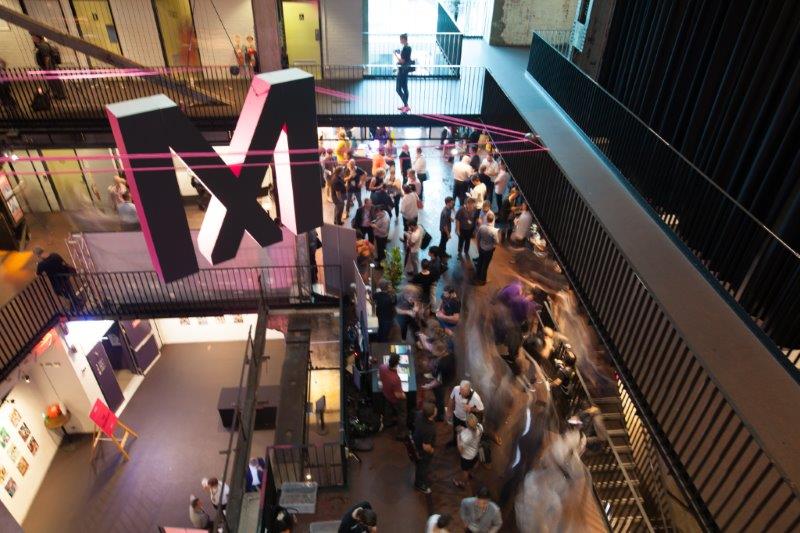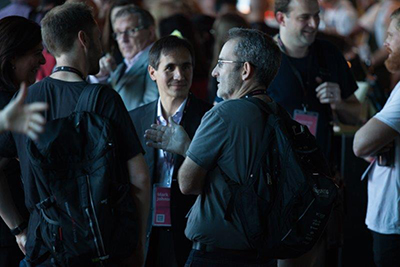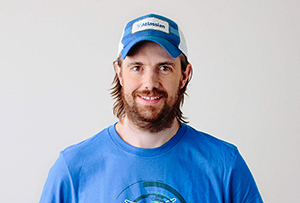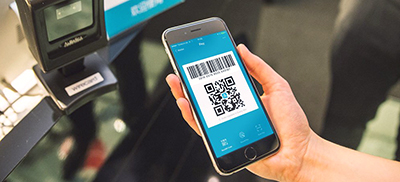ICC Sydney innovates Feeding Your Performance business program
INTERNATIONAL Convention Centre Sydney’s (ICC Sydney) Feeding Your Performance program is being hailed as a blueprint for innovation, delivering economic, social and environmental advances for Sydney and New South Wales (NSW).
Research released by University of Technology Sydney (UTS), reviewing ICC Sydney’s all-encompassing Feeding Your Performance (FYP) program, commended the approach and said it was a supply chain blueprint for other Australian venues and businesses. 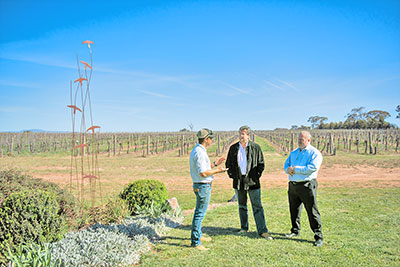
Embedded across ICC Sydney’s operations, the FYP program strives to ‘feed the performance’ of ICC Sydney delegates and visitors, team members, and the local economy, through a unique New South Wales-focused supply chain, a progressive sustainability approach and an industry-first Legacy Program.
The UTS report noted ICC Sydney delivered a total of $8.3 million to the NSW economy in 2017 through its food and wine purchases alone. This represented a direct investment of more than $4.3 million in a network of more than 85 NSW producers and farmers.
Overall, delegates attending events at ICC Sydney generated $785 million in direct expenditure for the state in the centre’s first year of operation.
NSW Minister for Primary Industries, Regional Water, Trade and Industry, Niall Blair applauded ICC Sydney’s approach and said the research reinforced “the venue’s reputation for innovation and excellence across the board”.
“ICC Sydney is pioneering a commercial model which is driving a triple bottom line, delivering significant economic, social and environmental gains for New South Wales, and establishing a benchmark for best practice across sectors.
“For example, ICC Sydney’s approach to working hand-in-hand with local suppliers could be adopted by other venues to provide financial security for farmers and producers, driving employment and growth opportunities in regional areas,” Mr Blair said.
“The culinary aspect of the FYP program is also showcasing the state’s outstanding produce on the global stage and creating new markets for agriculture and tourism,” he said.
ICC Sydney CEO, Geoff Donaghy said it was vitally important that convention centres measure the full impact they have on their supply chain.
“We are immensely proud to be looking beyond the borders of Sydney to feed the business performance of our suppliers as well as the communities in which they’re located,” Mr Donaghy said.
“As urbanisation increases, cities and their convention centres have a role to play in supporting the regional areas that feed them and support their event delivery. If our success is underpinned by delivering restaurant-quality produce, then we have an important role to play in supporting the supply chain that enables this.”
According to the research, other key benefits of ICC Sydney’s FYP program included supporting NSW producers and regional development; providing demand for seasonal, fresh produce that counters market volatility inherent in the food industry; driving employment growth opportunities; increasing cash flow for farmers and producers, boosting production and supporting improvements to infrastructure.
The FYP program is also having an impact on environmental sustainability.
Mr Donaghy said ICC Sydney was able to support local producers in alignment with state government sustainability strategies, while endorsing CSR and stewardship. The program reduced ‘food miles’ and made a smaller carbon footprint while improving efficiencies. The ICC is also partnering with OzHarvest to donate unused excess food to disadvantaged members of the community – and with Sydney Water to save 775,000 plastic bottles from use, indirectly reducing gas emissions by 400 tonnes. ICC Sydney is also focusing on recycling, reduced use of chemicals, reduced waste and effective waste management.
According to UTS there were major community benefits stemming from the FYP program.
UTS identified that it encouraged awareness and concerns for farmers and local communities; and it supported farmers to grow high quality, sustainable, and new and speciality produce.
The program proved strong at building staff morale with an inclusive recruitment program, while it also supported local and diverse communities, including First Nations peoples and businesses.
ICC Sydney’s unique multi-streamed Legacy Program provided event organisers with opportunities to partner with local organisations through four diverse streams: Innovators and Entrepreneurs, Generation Next, First Australians and Sustainable Events.
Mr Donaghy said key to the venue’s ongoing success would be driving continuous improvement.
“In the years to come, we are committed to continuing as we’ve started, supporting further investment in agritourism, building job opportunities and facilitating growth within our network of suppliers and beyond,” Mr Donaghy said.
“This includes continuing to track impact across all sectors of the business and our supply chain so that the NSW community continues to thrive.”
ends



